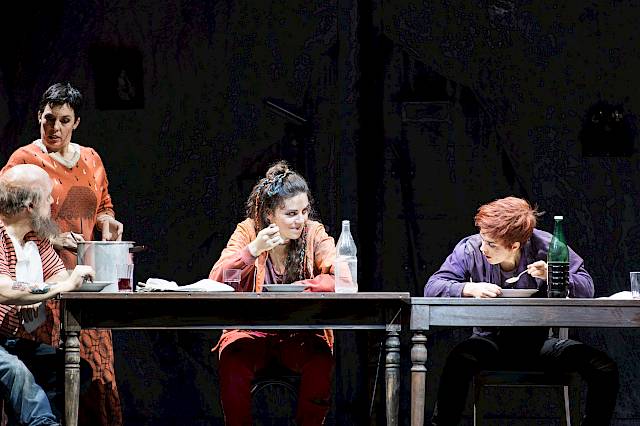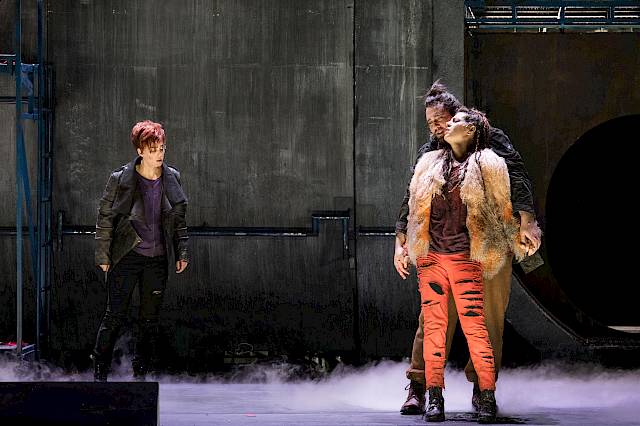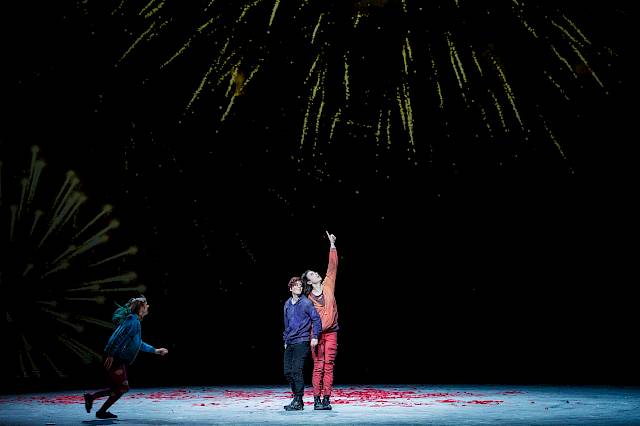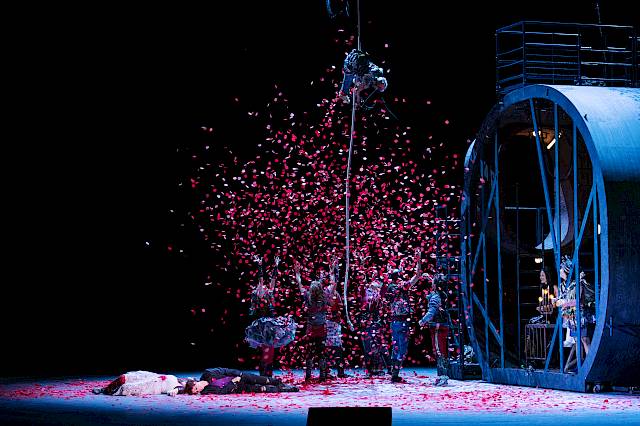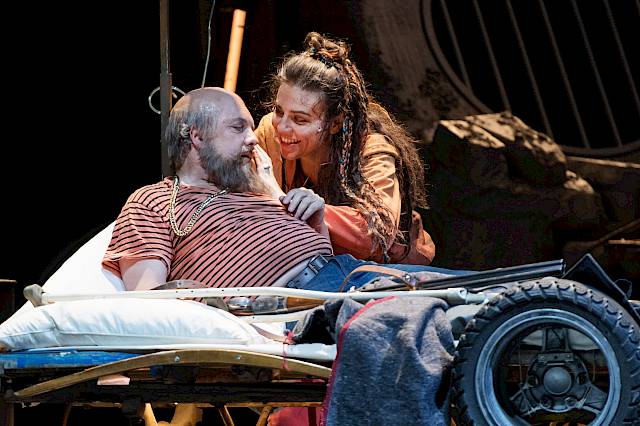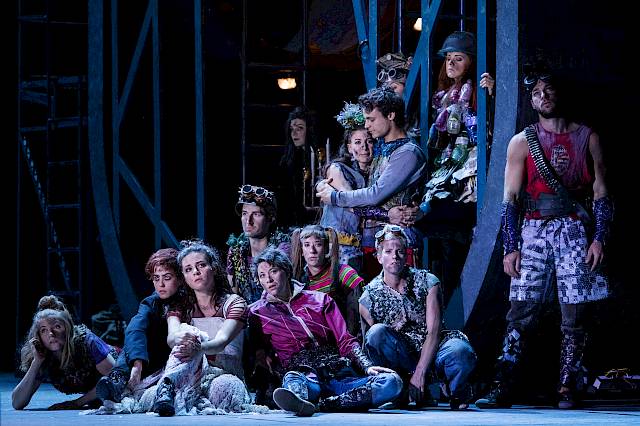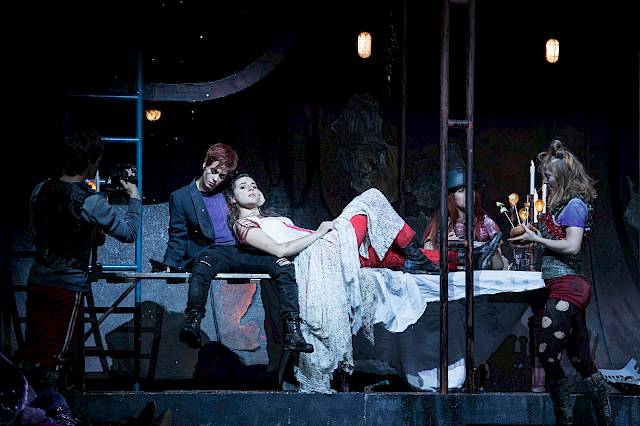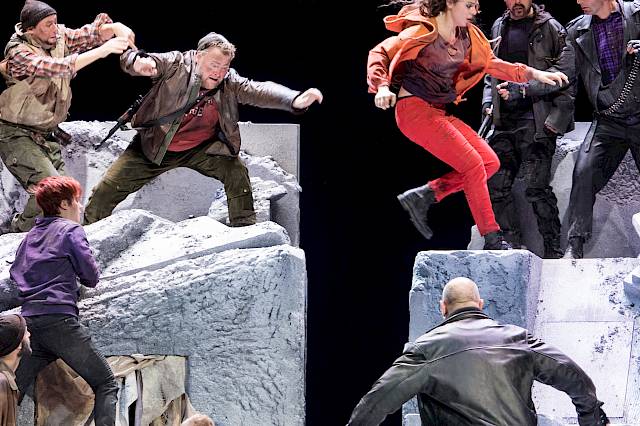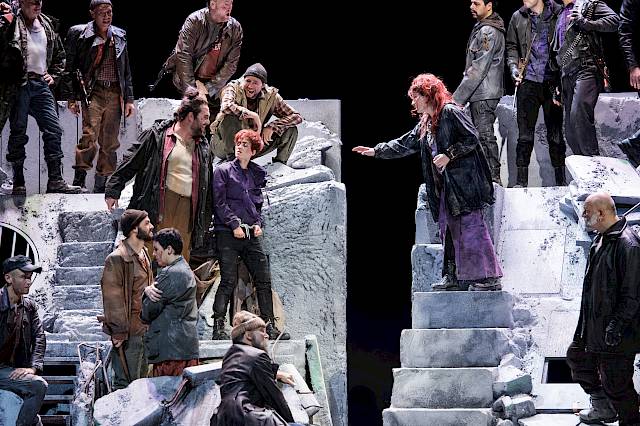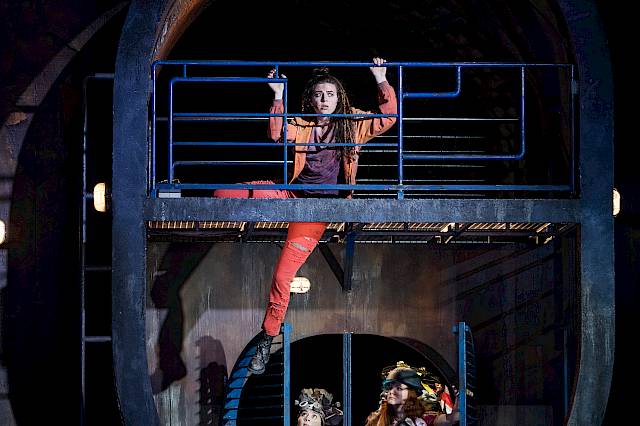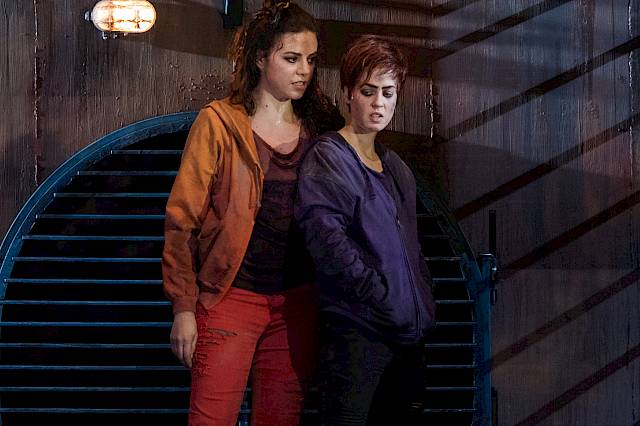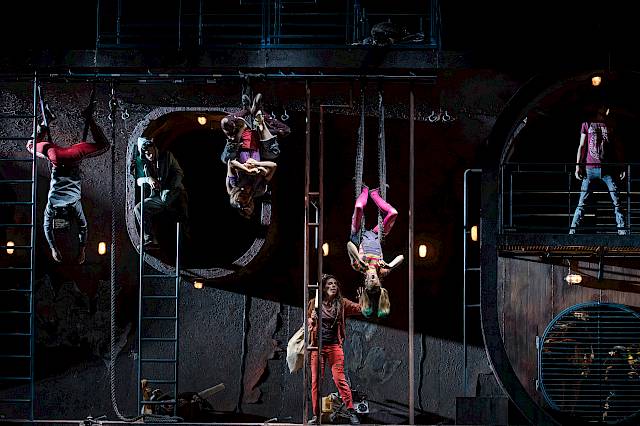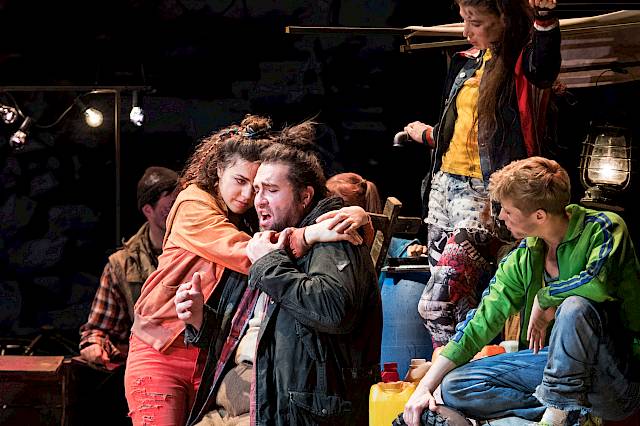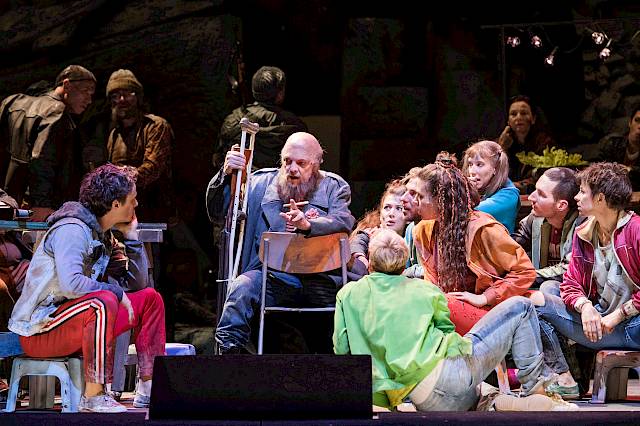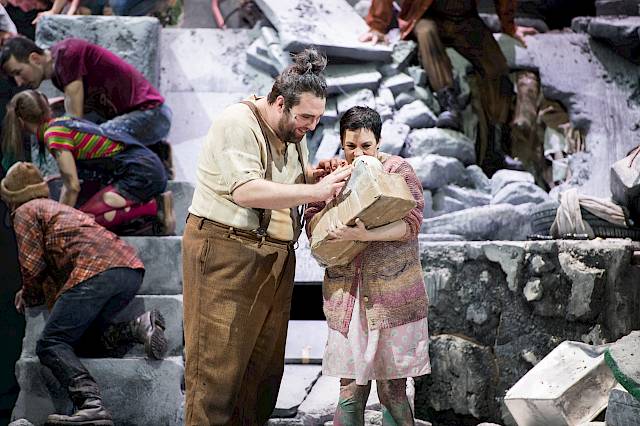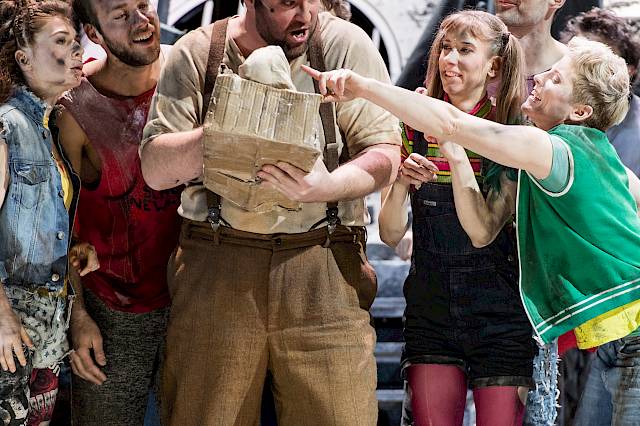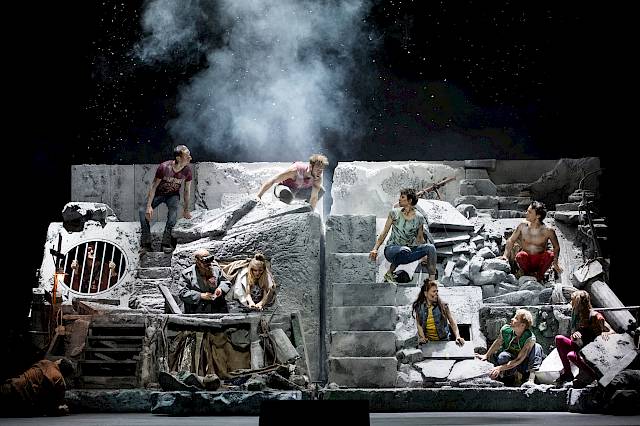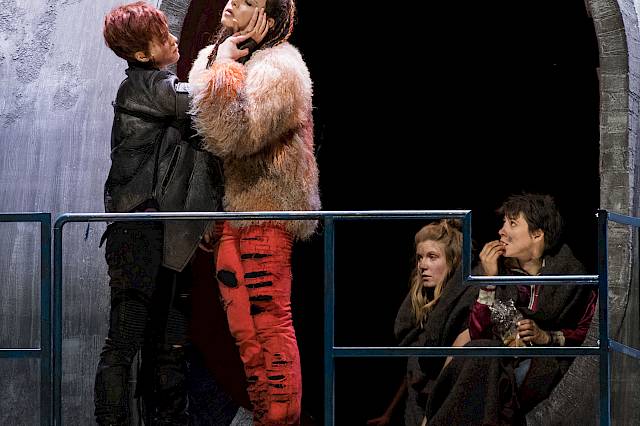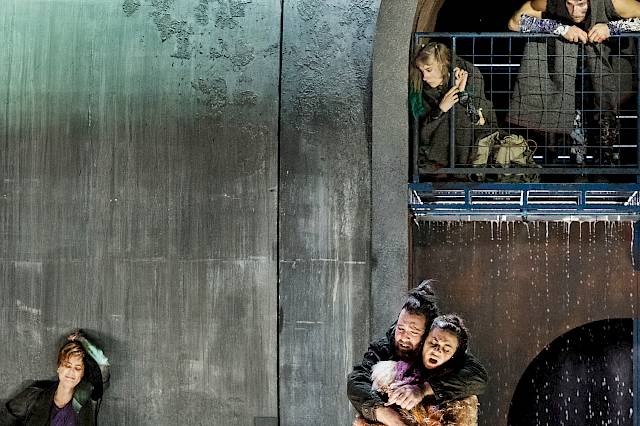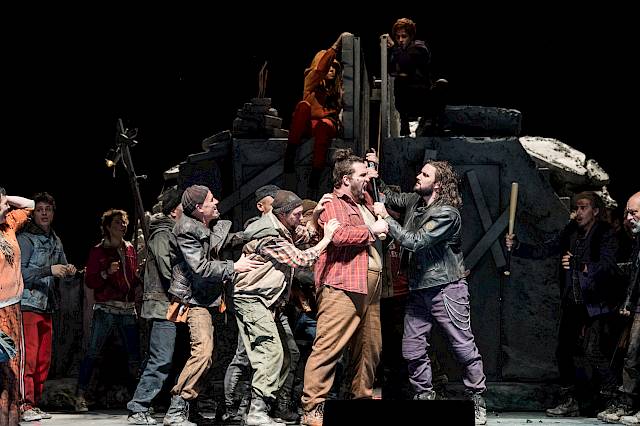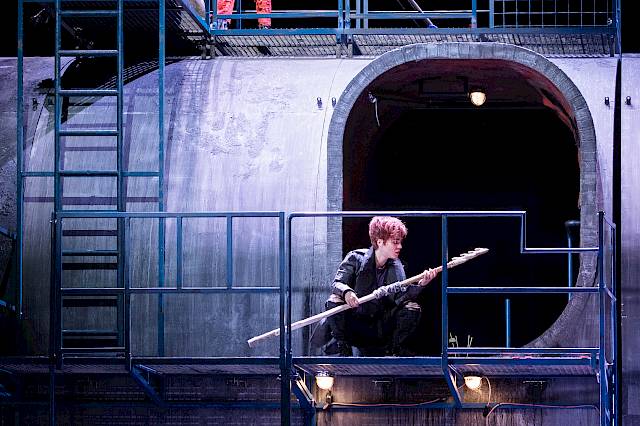Ronja Räubertochter
Family opera by Jörn Arnecke (*1973)
Libretto by Holger Potocki after the eponymous book by Astrid Lindgren
Swiss première performance
In German. Duration 2 H. 10 Min. incl. intermission after 1st part after approx. 55 Min.
Supported by 
Good to know
Ronja Räubertochter
Abstract
Ronja Räubertochter
Ronja, daughter of Mattis, the robber chieftain, is born during the night of a storm so terrible that it frightens even the ogres of the Mattis Forest. Ronja grows up among roughshod but warm-hearted robbers, who like nothing more than singing songs about carousing and fighting. Then, at last, the moment comes: for the first time, she is allowed to go into the Mattis Forest alone! Ronja finds her new freedom incredibly tempting, despite the many dangers of which Mattis has warned his impetuous daughter. When she indeed falls into a trap laid by the Rumble Dwarves, ironically, it is Birk, son of the enemy Borka robbers, who rescues her. The two become friends. Their parents are highly displeased and would like to forbid their friendship, but Ronja and Birk are inseparable and decide to spend the summer together in the forest without their parents.
The German composer Jörn Arnecke has created a family opera based on Astrid Lindgren’s famous story about the power of friendship and the courage of a strong-minded girl who strikes out on her own, even when confronted with fierce resistance. Ronja Räubertochter (Ronja, the Robber’s Daughter) was premièred at Duisburg Opera in 2014. Arnecke not only found the right tone for the wild robber songs, but also depicted the robbers’ forest with his subtly orchestrated, almost impressionistic music in such a way that the listener can almost literally sense the good and evil mythical creatures that dwell there. This is a complex piece of musical theatre that will appeal to children and adults alike. The French director Marie-Eve Signeyrole will stage Ronja Räubertochter with the theatrical resources of a large-scale opera production.


